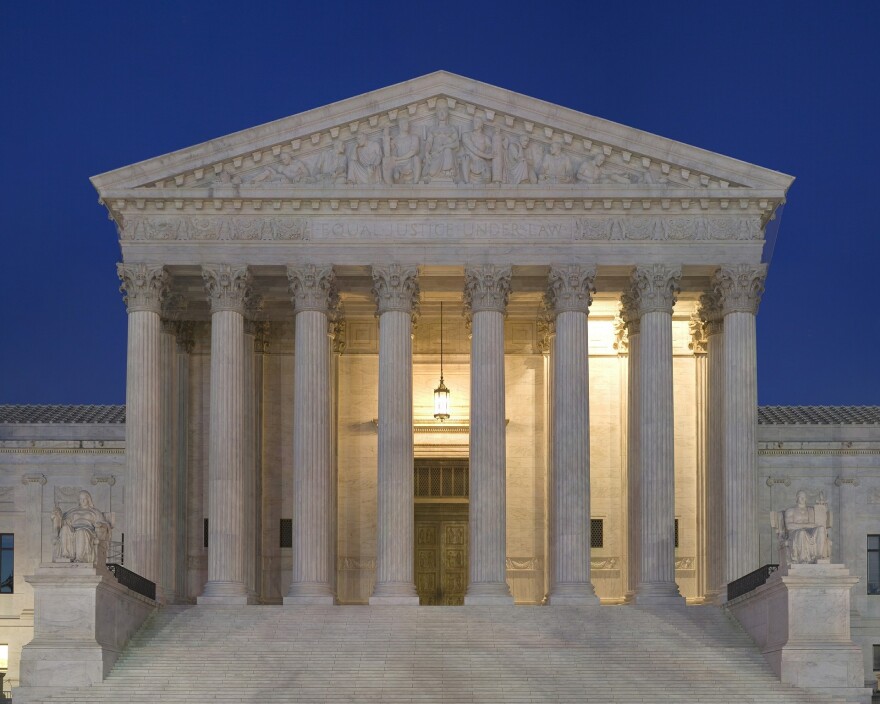The U.S. Supreme Court ruled in favor of a limited version of President Trump's travel ban this week, saving broader consideration for the fall. We cover the legal arguments and look at other high-profile high court cases this term, including First Amendment issues on trademarks and hate speech.
GUESTS:
- John Greabe - Professor of Law of the University of New Hampshire Law School.
- Jennifer Sargent - Associate Professor of Writing and Rhetoric at Dartmouth College; former law professor, district-court judge, and public defender.
The U.S. Supreme Court Upholds Parts of President Trump's Travel Ban
The travel ban that had been blocked by lower courts was partially upheld by the Supreme Court on Monday, but the Court did not rule on whether the ban is constitutional. For now, there will be a 90-day review before permitting foreign nationals from six Muslim majority countries (LIST) to enter the United States, and a 120-day review for refugees.
However, according to the decision, those "with credible claim of a bona fide relationship with a person or entity in the United States" are allowed to enter the country.
John Greabe, Professor of Law at UNH Law, said:
So students, or relatives of families, from these six nations, and also refugees, are still going to be permitted to come to the country. But, for people who do not have close connections to the country already, the Presidential order is going to be allowed to go into effect.
Read more about this case from NPR.
In Trinity Lutheran v. Comer, the Supreme Court ruled that a Missouri preschool and daycare center run by the Lutheran Church could receive public grant money to install rubberized material on the surface of their playground.
Jennifer Sargent, professor at Dartmouth College and former district-court judge, said the ruling seems to say, for the first time, that public money can go to a church or a religious institution. However, Sargent says, footnote 3 in the opinion limits this ruling significantly:
The reason I think that there was so much agreement in this decision is because footnote 3 radically reigns in this decision. Now, Chief Justice Roberts wrote this decision, and his footnote is explicit. It says this is just for this case, the facts of this case, that's it. [Justices] Gorsuch, Thomas, and Alito, they didn't like footnote 3, they thought that it should have gone further. But footnote 3 really circumscribes the case.
The footnote reads: "This case involves express discrimination based on religious identity with respect to playground resurfacing. We do not address religious uses of funding or any other forms of discrimination.
Read more about Trinity Lutheran v. Comer here.







